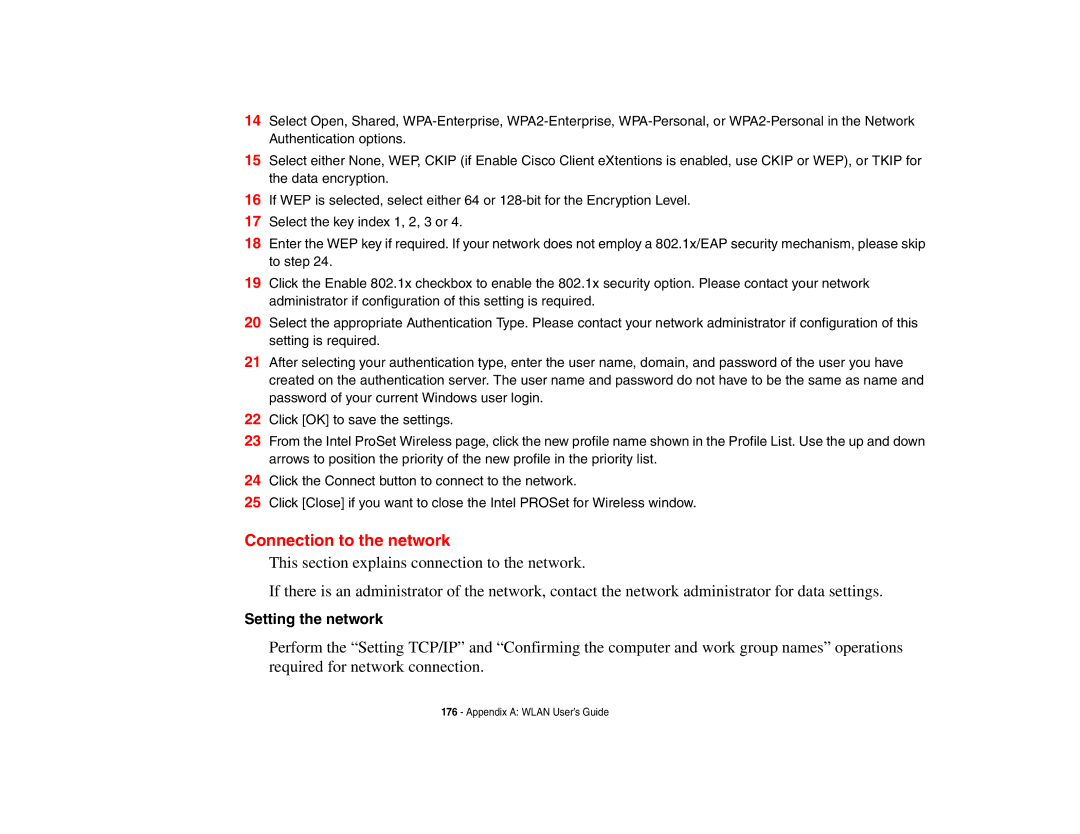14Select Open, Shared,
15Select either None, WEP, CKIP (if Enable Cisco Client eXtentions is enabled, use CKIP or WEP), or TKIP for the data encryption.
16If WEP is selected, select either 64 or
17Select the key index 1, 2, 3 or 4.
18Enter the WEP key if required. If your network does not employ a 802.1x/EAP security mechanism, please skip to step 24.
19Click the Enable 802.1x checkbox to enable the 802.1x security option. Please contact your network administrator if configuration of this setting is required.
20Select the appropriate Authentication Type. Please contact your network administrator if configuration of this setting is required.
21After selecting your authentication type, enter the user name, domain, and password of the user you have created on the authentication server. The user name and password do not have to be the same as name and password of your current Windows user login.
22Click [OK] to save the settings.
23From the Intel ProSet Wireless page, click the new profile name shown in the Profile List. Use the up and down arrows to position the priority of the new profile in the priority list.
24Click the Connect button to connect to the network.
25Click [Close] if you want to close the Intel PROSet for Wireless window.
Connection to the network
This section explains connection to the network.
If there is an administrator of the network, contact the network administrator for data settings.
Setting the network
Perform the “Setting TCP/IP” and “Confirming the computer and work group names” operations required for network connection.
176 - Appendix A: WLAN User’s Guide
